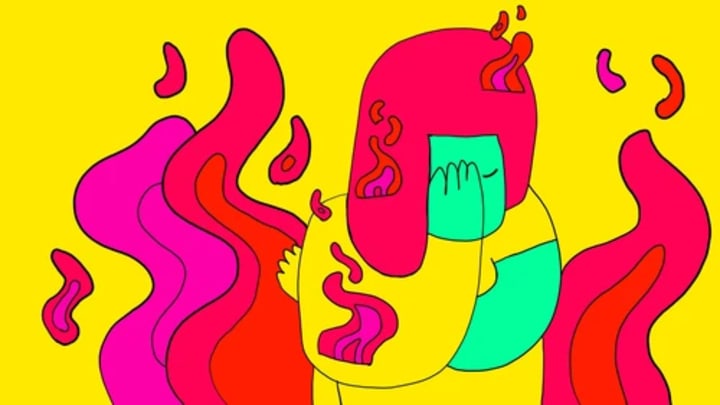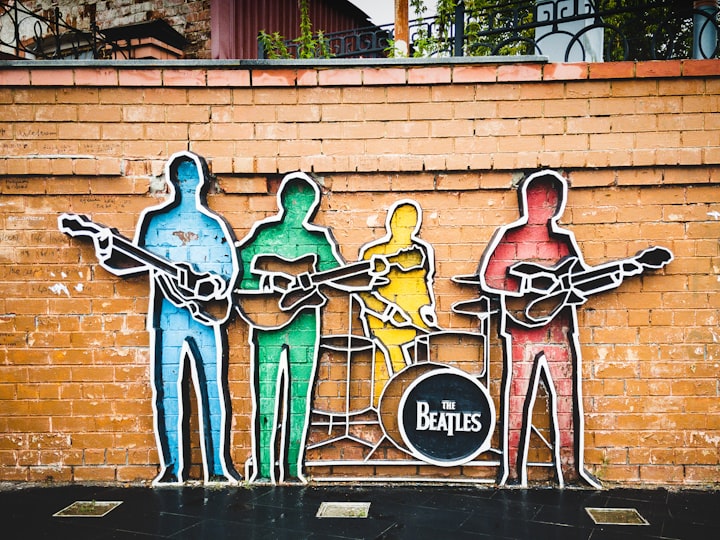All the signs that show you are in a toxic relationship, even though you don't want to accept it
What are the signs of a dysfunctional relationship? I spoke to a psychologist about gaslighting, retroactive jealousy and the lack of boundaries.

Toxic relationships can come in many forms, but most often when we talk about it, we mean a romantic relationship between two people.
A romantic relationship can be toxic from the start, or it can become compromised over time on many levels. It may happen that one has a behavior that undermines the freedoms of the other. But more often than not, it happens that one of the two exercises their power over the other by exploiting their insecurities. In such a relationship, the consequences and damages are emotional, mental or even physical.
We all know several examples of such relationships - from critically acclaimed films such as 365 Days, in which physical violence is glorified, to some scenes in Love Island, in which psychological violence is presented as something normal, in everyday life by day.

Dania Piras is a psychologist and sexuality expert. We talked to her about dysfunctional behaviors in relationships, their manifestations and how we can get out of them.
VICE: We often talk about toxic relationships. Can we give a clearer definition to this phenomenon without generalizing?
Dania Piras: Yes, first we have to ask ourselves: are we talking about a specific behavior or about the relationship in general? Furthermore, not all behaviors are toxic in the same way, because individuals are different and can be hurt by different people in different ways.
If in a relationship toxic behaviors prevail over a very long period of time, then yes, we can talk about a toxic relationship. But I, as a psychologist, prefer to call it a dysfunctional relationship.
What are these behaviors?
Well, one would be gaslighting, when one partner says the other person is crazy or mentally unstable to defend their opinion or position. In addition, they take advantage of their partner's mental health to exert their power in the relationship.

Then there would be retroactive jealousy, when one of the partners is jealous of the partner's previous relationships or past sexual partners and not only does not want to hear from them, but even prevents the partner from communicating with them.
Blackmail, which manifests itself as: "If you go out with friends, it means you don't care about me." It is used to convince the other person to do or not do something, through emotional manipulation.
Lack of boundaries: "We have to do everything together." Lack of privacy, the inability to decide to keep something just for yourself, often connected to the obsessive desire to control your partner's behavior on social media or on the phone.
Stonewalling: refusal to communicate through the use of silence, refusal to respond to the partner's attempts to open a dialogue.
Ghosting: Disappearing suddenly without warning with the intention of punishing bad behavior.
Possessiveness: "you are mine". In the culture we live in, it seems like a nice thing, but it can lead to extreme behaviors.
Devaluation: when you tell your partner that he is incapable, that he does not understand, that he is a loser.

Is it possible to confuse a period of crisis in a relationship with the signs of a toxic relationship?
The conflict is not necessarily something dysfunctional if both partners are willing to discuss the subject. The absence of conflict often means that the partners are repressing something. Thus, we can speak of two types of crisis: one is an opportunity and a systematic event in any kind of relationship. Physiologically, it has to happen for one reason or another, because we're human and it's normal to not be perfectly aligned with each other.
Another type of crisis, on the other hand, is when you become aware of all the possible and previous toxic elements - which you had a hard time accepting.
Speaking of which, why do we often fail to notice these signals? And why don't we admit that the relationship is toxic?
It depends on many factors: emotional maturity (maybe a teenager does not understand that he is doing certain things); how you received affection as a child; personal history; the degree of dependence on the other person, which can be emotional, economic or social (I cannot go out in public without him or her).
Some important signals can come from family or friends. The problem is that toxicity often clouds our minds. This can cause us to distance ourselves from those who disagree with our choices – especially if we subconsciously suspect that we are in an unhealthy situation.
It's very tiring to be in a toxic relationship. You always feel that you have to agree with the other person, respect their needs and avoid disappointing or angering them.
What should I do if I am in a toxic relationship or my partner has certain toxic behaviors?
Many times, couples turn to a specialist when the relationship is very compromised - if both partners want to change things. It's usually the ones with the toxic behavior who suggest it, because they hope the other person will change their attitude.
When your partner doesn't listen to you or doesn't give you a chance to talk, it's best to leave the relationship, even if it means overcoming your irrational fear of loneliness.
What if I'm the person who has toxic behaviors in the relationship?
Ideally, you should focus more on the other person's feelings, listen, ask for feedback. Find out if you were wrong and in what way. But it's not that simple: it's very hard to deconstruct some internalized beliefs. If you have the impression that jealousy is synonymous with love, it doesn't mean that you won't think like that overnight. You have to work at it.
People find it difficult to recognize aspects that do not correspond to the idea they have of themselves. It would be best to talk to a specialist about this.
Let's talk about physical abuse: does it fall under the concept of a toxic relationship?
An abusive relationship is toxic, so a toxic relationship can include physical abuse. There are situations where you feel your safety is at risk and it is good to go to a center for victims of domestic violence, where you will receive specialist support.
But it can be said that all toxic relationships involve psychological violence – which is based on belittling and gaslighting – and symbolic violence. Symbolic violence is institutionalized. Let me give you an example: a patient of mine continued to live with her ex-partner for economic reasons. After the breakup, he started doing chores around the house. When she asked him, “Why weren't you doing this before?” he replied, “Because we're roommates now. Before we were together and you were the woman in the relationship".

How do you recover from a toxic relationship?
It takes time to process the loss of the relationship you idealized or thought you had, but also to accept that you were complicit in a toxic relationship and didn't have the strength to break away sooner.
You need to find things to do, with the help of your network of friends, and without pressure or comments like "don't worry, you will find the right person" or "I want to introduce you to someone". In addition, it is very important to eliminate any contact with the ex-partner or at least limit it (because it is more difficult to cut him off, if there are children involved).
Most of the time, with patients who have come out of toxic relationships, we work on rebuilding their identity and self-esteem. I help them understand that just because they've been in certain situations, it doesn't mean they're weak or stupid.







Comments
There are no comments for this story
Be the first to respond and start the conversation.